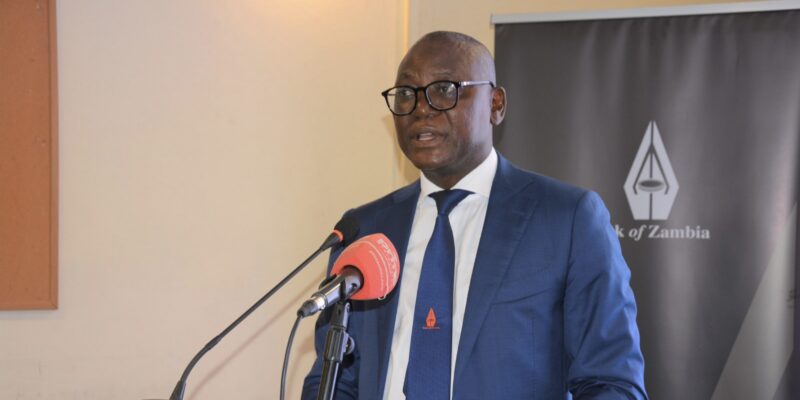Zambia’s central bank says it is being kept “up at night” by the current high inflation rate, volatility of the Kwacha and financial stability risks emanating from cyber security.
Highlighting some of the recent economic developments keeping the Central bank on its toes, Bank of Zambia Deputy Governor-Operations, Francis Chipimo, expressed optimism that these would be resolved this year.
On inflation rate which is currently at 13.1 percent as at December, 2023, Chipimo acknowledged that it was significantly above the Central bank’s target, which was to keep annual inflation between six to eight percent.
He, however, mentioned that the bank remained resolved in its efforts to bring inflation back into the target range.
Chipimo said this on Tuesday in Siavonga at the 17th BoZ Media Seminar.
“Weather related shocks, weakness in the exchange rate, higher administered prices on electricity and fuel have all been important drivers of higher inflation. The Bank has taken measures to tighten monetary policy by adjusting both the policy rate and the statutory reserve ratio.
“In 2023, the Policy Rate was adjusted upwards by two percentage points from 9 percent at the beginning of the year, to 11 percent and the statutory reserve ratio by eight percentage points from nine percent to 17 percent by end of the year,” he said.
On volatility in the exchange rate, Chipimo is hopeful that the current trend would be reversed in 2024, with the announced conclusion of matters relating to Konkola Copper Mines (KCM) and Mopani offering renewed hope.
He explained that the current trend had largely been driven by lower supply of foreign exchange on the market in the face of rising demand as the economy continues to recover from Covid-19 pandemic.
“The poor performance of the mining sector, in terms of lower production and export earnings, is a particular source of concern,” Chipimo said.
He also talked about the financial stability and the risks emanating from cyber security as the bank expanded the use of digital financial services and enhanced the efficiency of the payment system.
In this regard, he said, the bank recently launched its payment system vision and strategy to cover the period 2024 – 2027, meant to transform the national payment system to support the development of a 24/7 digital economy through interoperability, innovation, adoption of international standards and seamless processing of payments.
“We also issued cyber security guidelines for the management of cyber risks to financial service and payment service providers. Further addressing cyber security risks in the financial sector is an important pillar in our new 2024 – 2027 strategic plan.
“To this end, late last year, the BoZ Board approved a new organisational structure that enhances our ICT department,” Chipimo said.
Meanwhile, he said the media was a key stakeholder in the formulation and implementation of monetary policy.
WARNING! All rights reserved. This material, and other digital content on this website, may not be reproduced, published, broadcast, rewritten or redistributed in whole or in part without prior express permission from ZAMBIA MONITOR.












Comments